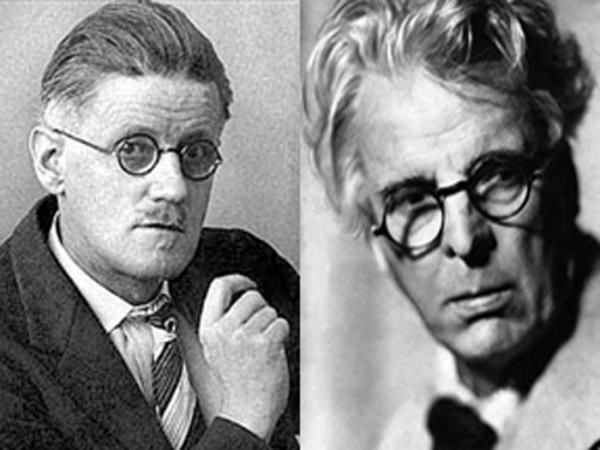We have the pleasure of inviting you to two public lectures:
15.30-16.45, Room 139: Prof. Eve Patten (Trinity College, Dublin), ‘Yeats, Race, and Caricature’
How was ‘Irishness’ mobilised as a critical evaluation in the wake of the Irish Literary Revival? When novelist and critic Rebecca West reviewed The Cutting of an Agate by W.B. Yeats for the New Republic in 1919, she suggested that: ‘[O]ne cannot fully enjoy this book unless one remembers a very real racial distinction between the English and the Irish’. Considering the same work in the Athenaeum, T.S. Eliot distinguished the ‘foreign mind’ of the Irish poet, a further variation on the theme that would culminate in his 1940 essay on the ‘Irishness’ of Yeats’ late work. This talk traces how Yeats was increasingly configured—and caricatured—in terms of an ‘Irish personality’ and relates this construction to wider discussions on race and nationalism in the long interwar era.
Eve Patten is Professor of English at Trinity College, Dublin, and Director of the Trinity Long Room Hub Arts and Humanities Research Institute. She lectures and writes in the area of nineteenth and twentieth-century British and Irish literary history, and her recent publications include (as editor) Irish Literature in Transition, 1940-1980 (CUP, 2020), and (as author) Ireland, Revolution, and the English Modernist Imagination (OUP, 2022). She is co-editor, with Paul Delaney, of a volume of short stories, Dublin Tales, forthcoming from OUP in 2023, and has previously co-edited, with Aidan O’Malley, Ireland, West to East: Irish Cultural Connections with Central and Eastern Europe (Peter Lang, 2014). She is currently P.I. on the HEA-funded North-South research project, ‘Ireland’s Border Culture: A Digital Archive’.
17.00-18.15, Room 139: Prof. Enrico Terrinoni (Italian National Academy ‘Lincei’, Rome), ‘Who’s Afraid of Translating James Joyce?’
The notion of the unreadability of some of Joyce’s texts is debunked by their translatability and by the growing number of translations of books like Ulysses and Finnegans Wake. It has been said that translation is the afterlife of a text and in this light it might be worth considering what kind of new life that is. The paper will be an account of how I personally coped with the problems raised by translating Joyce, bearing in mind that translation is also a synonym for “change”.
Enrico Terrinoni is professor in residence at the Italian National Academy “Lincei”. He has translated several works by Joyce. His dual language annotated translation of Ulysses (2021) was recently awarded the Capalbio International Translation Prize. He has also translated works by Wilde, Shaw, Orwell, Hawthorne, Bobby Sands and many others.
This event is kindly sponsored by the Embassies of Ireland in Croatia and Slovenia.

